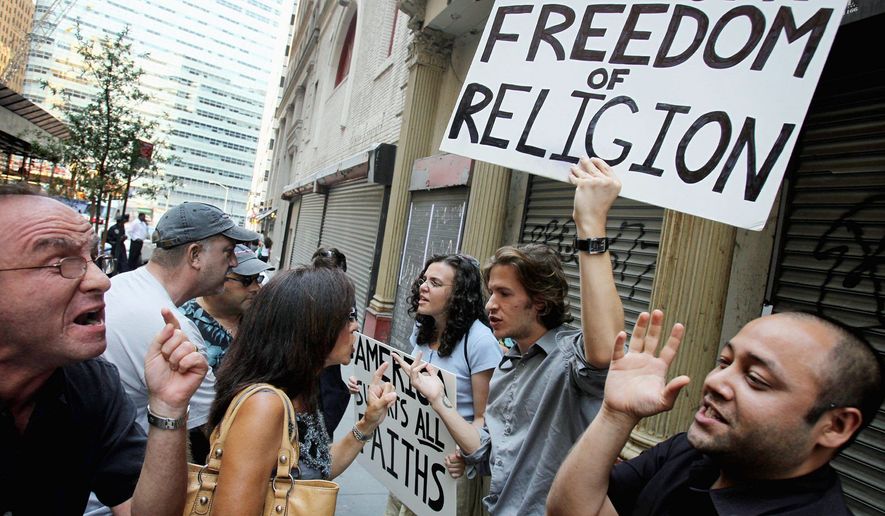Even as the Obama administration calls on nations to secure religious freedoms globally, advocates say the effort would get a boost with more action and leadership from the United States itself.
“The United States has had an ’official’ policy of promoting international religious freedom since the passage of the International Religious Freedom Act in 1998,” said Tom Farr, director of the Religious Freedom Project at Georgetown University’s Berkley Center for Religion, Peace and World Affairs. “As the most powerful and the most influential country in the world, it should be leading the fight against religious persecution and for religious freedom.
“Unfortunately, it is doing neither,” he said.
Monday marked the 16th anniversary of the act — a valuable tool in promoting religious liberty only if the federal government uses it to its full potential, said Katrina Lantos Swett, chairwoman of the U.S. Commission on International Religious Freedom.
“We want to see people at the highest levels saying ’we get it,’ religious freedom is not just a nice issue, it’s central to our foreign policy and national security policy,” Ms. Swett said. “We are not totally in the dark in the way our government actually works, but what you need is attention from those at the highest level that think this is important, this is a priority that is crucially in our national interest.”
Secretary of State John F. Kerry last year said freedom of religion is “a priority for President Obama because it is essential to human dignity and individual liberty, and it remains an integral part of our global diplomatic engagement.”
SEE ALSO: Houston Mayor Annise Parker withdraws pastor subpoenas after national uproar
But amid Islamic militants declaring a “caliphate” in the Middle East, Islamic extremists kidnapping young women in Nigeria, Buddhist-Muslim conflicts in Southeast Asia and widespread Christian persecution, religious freedom advocates say the U.S. can do more.
One area where the government can improve, said Mr. Farr, is to confirm Rabbi David Saperstein as ambassador-at-large for international religious freedom, and give him the staff and resources he needs. Mr. Obama and Mr. Kerry need to personally support Rabbi Saperstein “with a mandate to push this issue,” he said.
“American diplomats, foreign governments, and the victims of religious persecution understand quite well that U.S. international religious freedom policy is anemic, and ineffective,” Mr. Farr said. “It is highly rhetorical, consisting largely of reports and lists, but no action. It is not a priority for the Obama administration.”
Ms. Swett said she would like to see the U.S. government “raise the priority of religious freedom.”
“This should be a top issue” when Mr. Kerry goes abroad, she said, adding that on the domestic front, she’d like to see the State Department have “mandatory training on religious freedom issues” and refine how it categorizes threats to religious liberty in its reporting.
“I think it would be really great if we could find a mechanism for expanding [the State Department’s list of ’Countries of Particular Concern’],” Ms. Swett said. “What we do each year is evaluate the problematic countries but if you look around to entities like ISIS, [religious persecution] is currently being perpetuated by non-state actors.”
Travis Weber, director of the Center for Religious Liberty at the Family Research Council, said the Obama administration needs to be more clear and forceful in its statements on religious freedom.
“When Christians were being massacred by ISIS in Iraq, we had statements come out, couched in general terms, that weren’t forceful and clear,” he said. “It’s as if there’s this hesitance to advocate and defend vigorously international religious freedom rights.”
• Meredith Somers can be reached at msomers@washingtontimes.com.




Please read our comment policy before commenting.